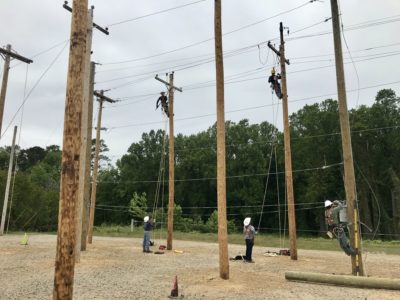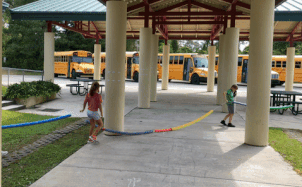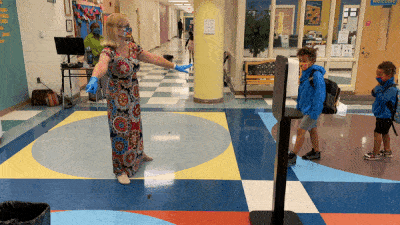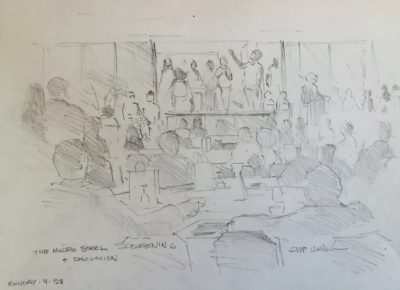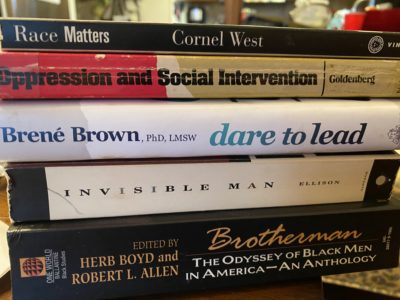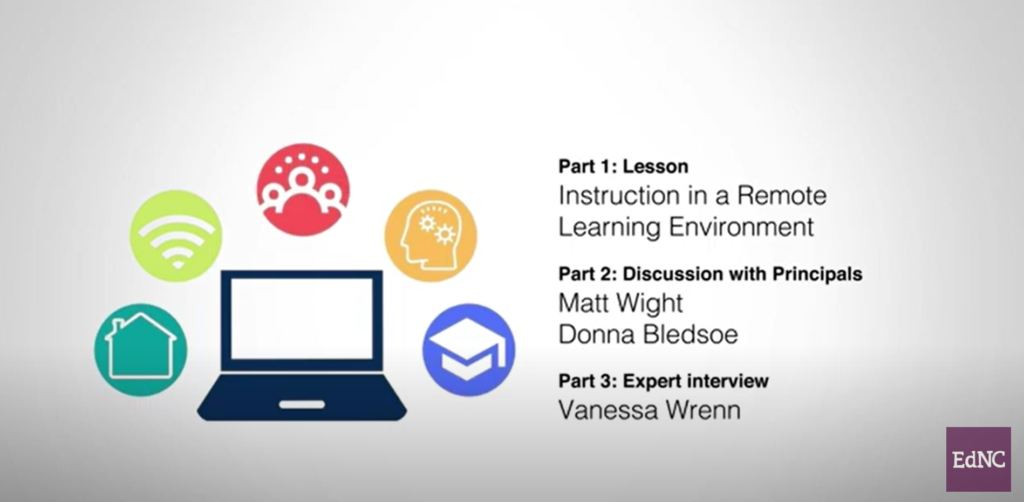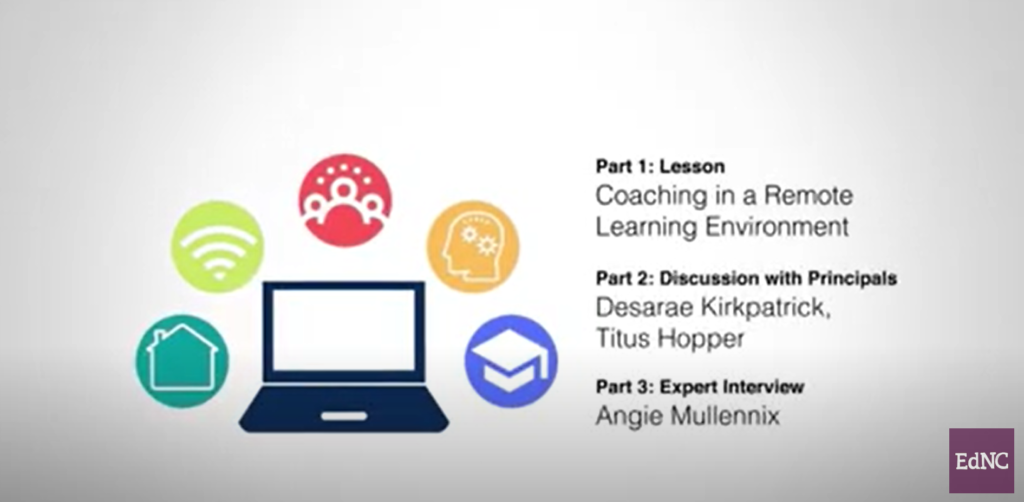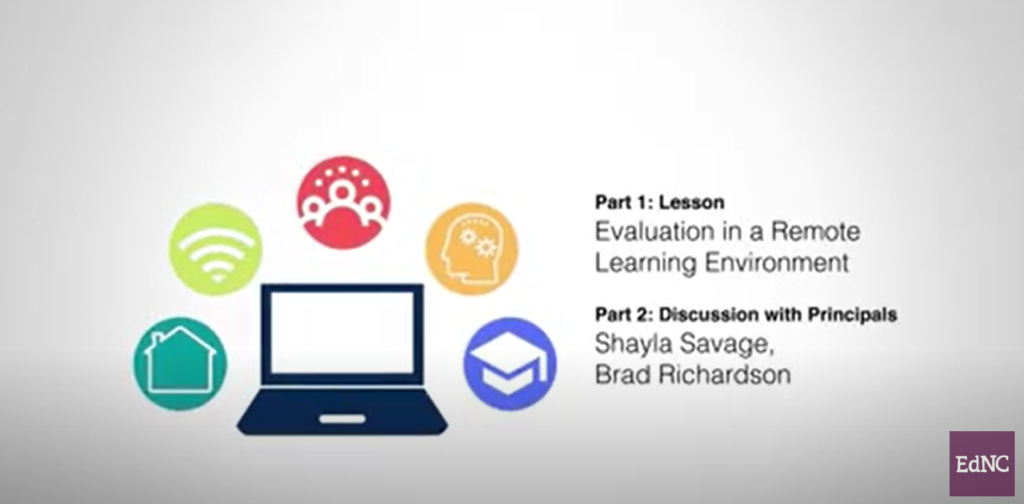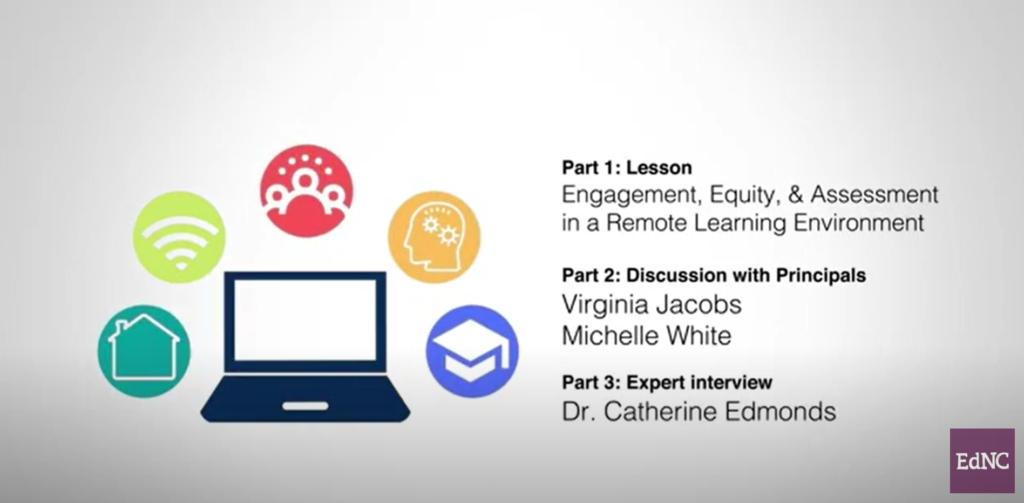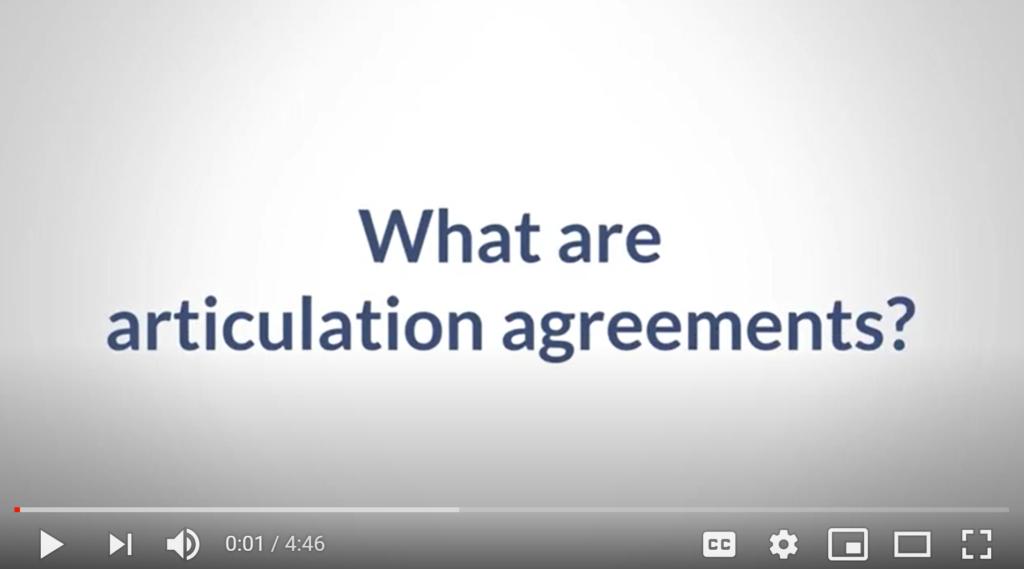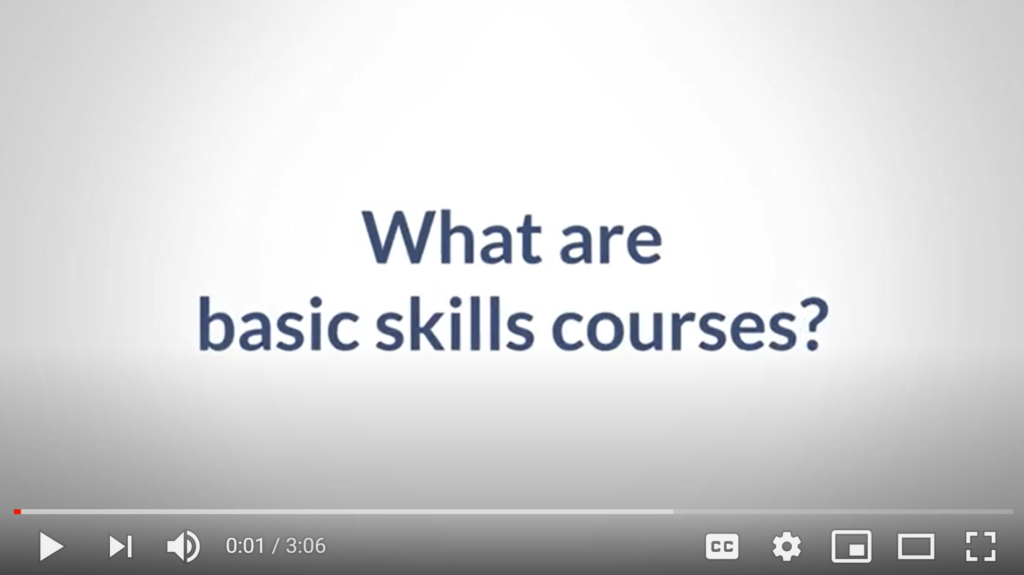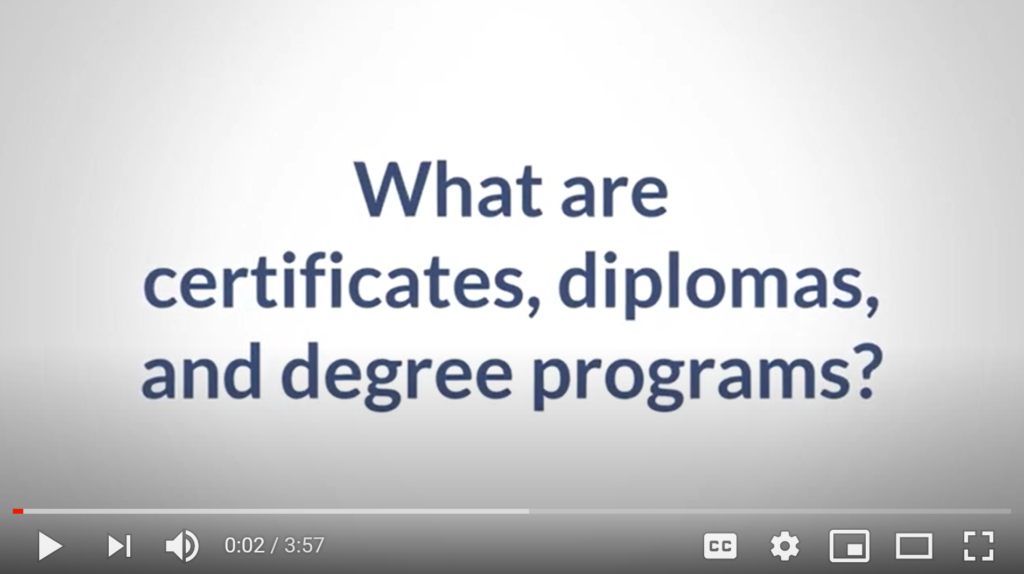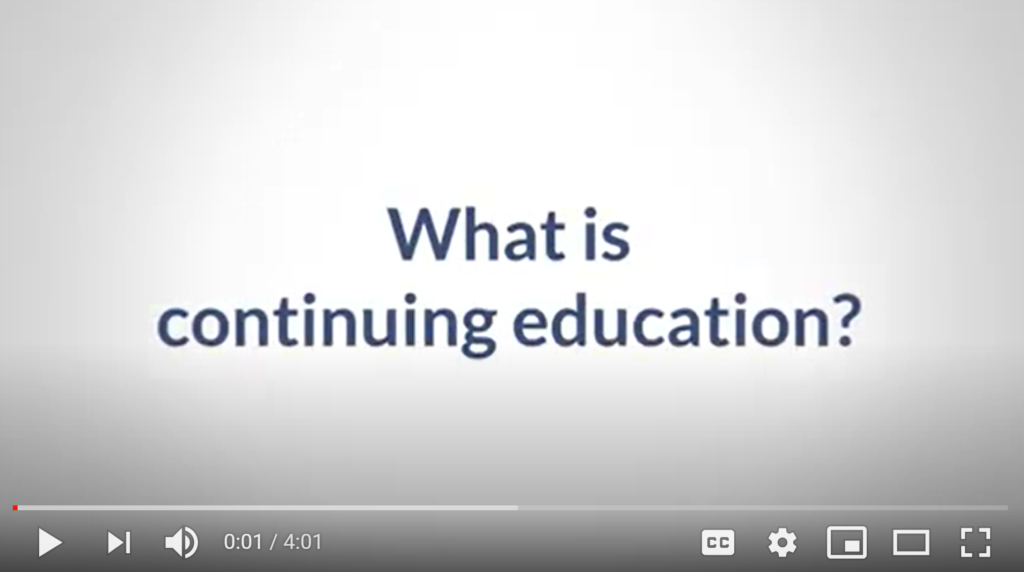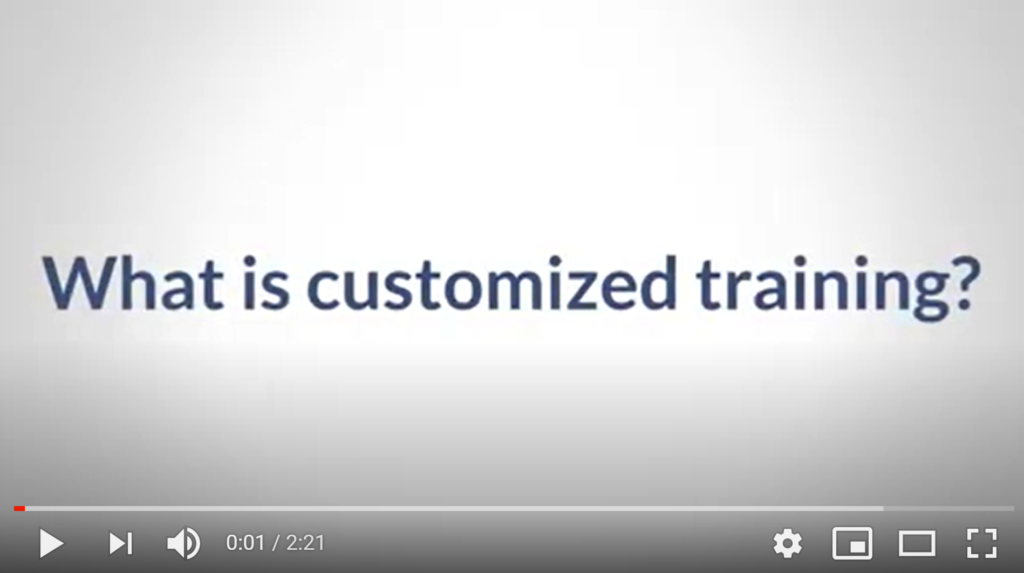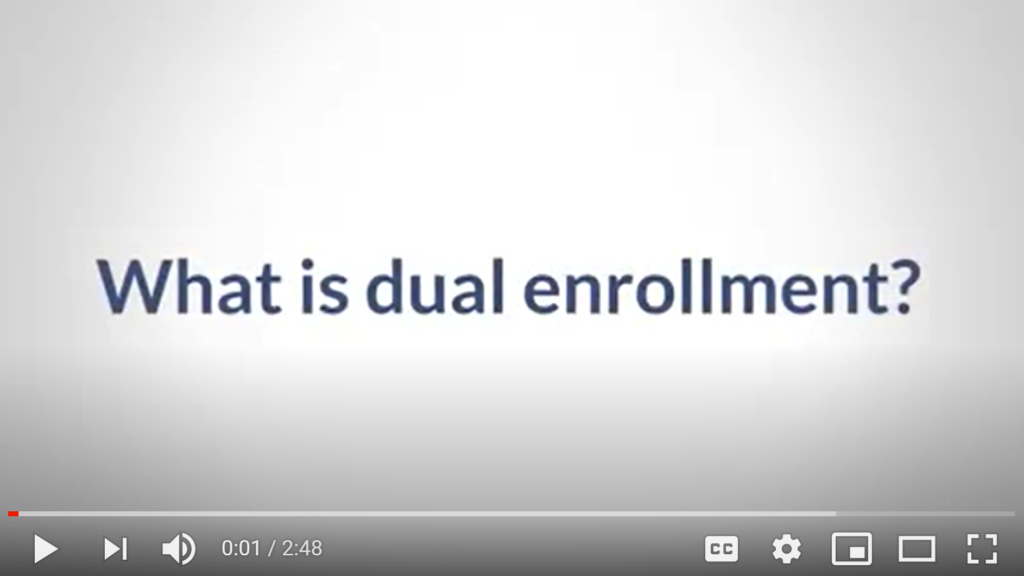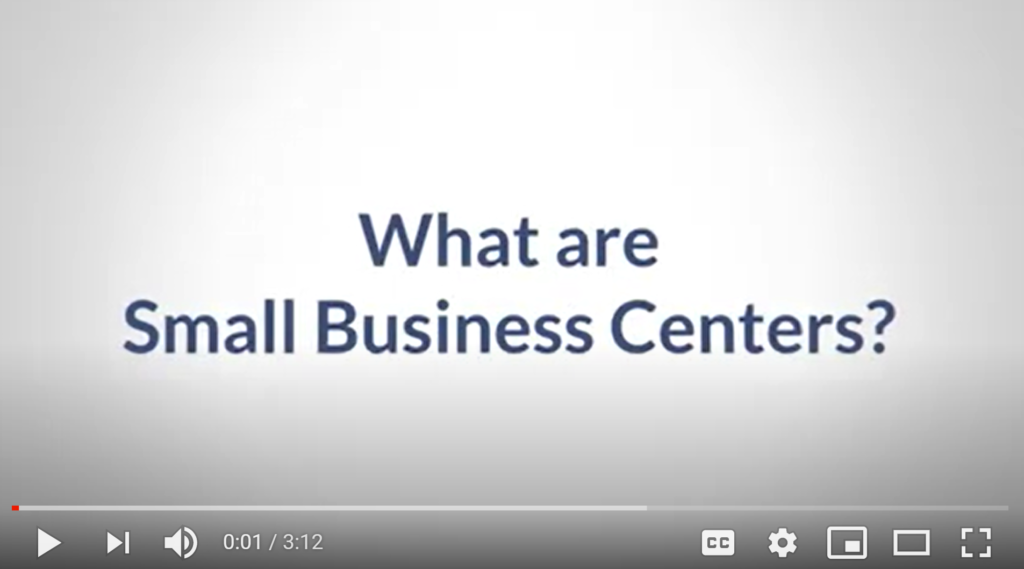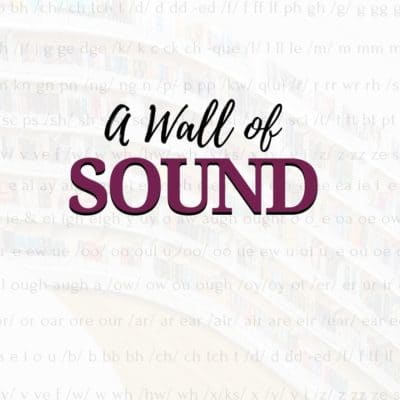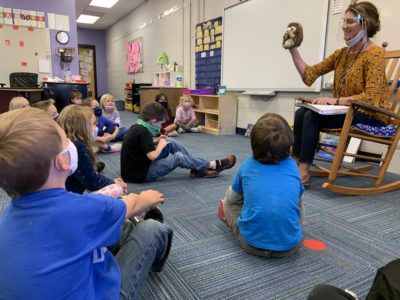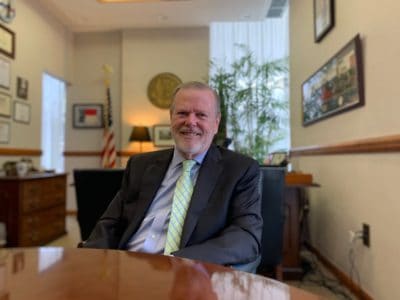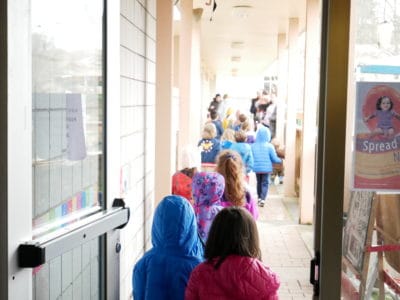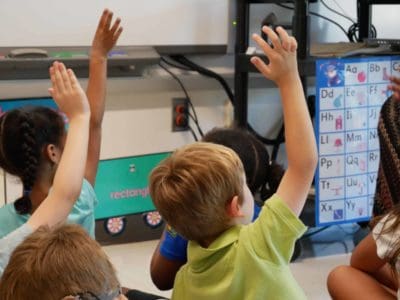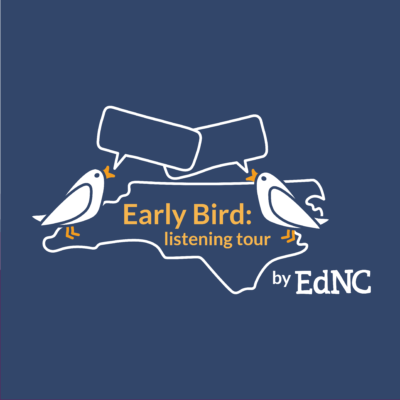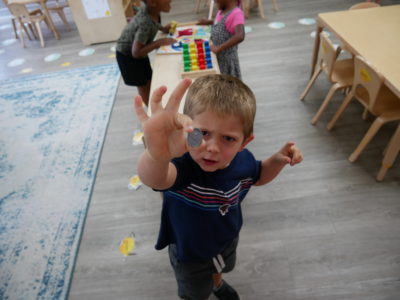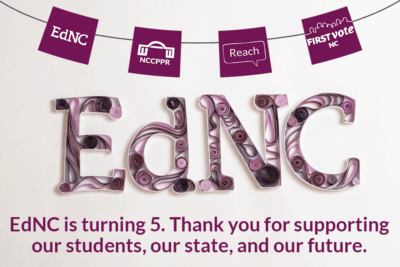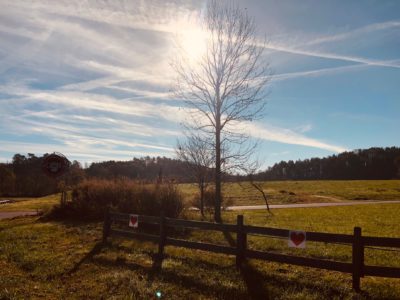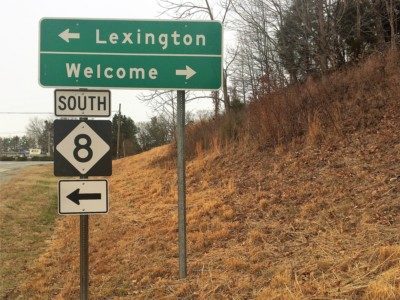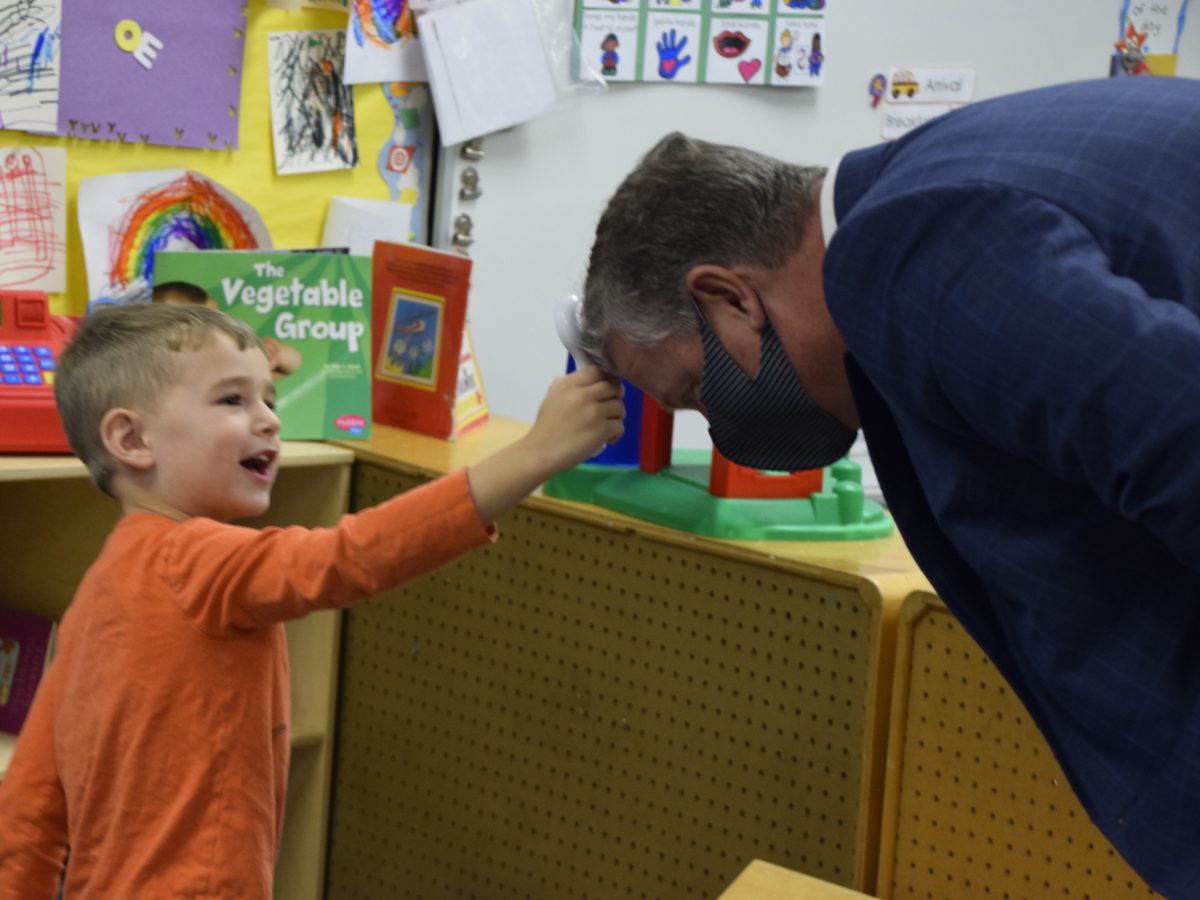

COVID-19. Locusts. Floods and earthquakes. Protests. Hurricanes . . . even in western North Carolina. Elections. An attack on our democracy.
The opportunity to write the story of our students, our state, and our future is our privilege.
What would it look like, we wondered, to meet this moment?
We decided to keep doing what we do best — showing up, masked up but in person, in your classrooms and in your community colleges, in your communities and in your lives, to listen as you made complicated decisions with real human consequences.
Between March and December 2020, we safely traveled to 34 school districts and 21 community colleges. Yours is a story of resilience and hope.
Six years ago, EdNC launched with the support of the low wealth school superintendents, and equity has been central to our mission and work from the beginning as we travel North Carolina. We hope our commitment and approach toward diversity, equity, and inclusion across the intrapersonal, organizational, community, and systems dimensions will shape the media industry. Under the leadership of Rochelle Ford, the dean of the school of communication at Elon University, and Melanie Sill, interim director of the NC Local News Workshop, EdNC has joined with other outlets to launch the NC Media Equity Project.
EdNC’s notable and newsworthy
Our audience
Our work begins and ends with you, our audience. Thank you for your ongoing engagement in our architecture of participation.
In 2020, we had 1,151,087 unique audience members and 2,013,905 pageviews. Thirty-two percent of our audience comes to us from email, 30% from social media, and 28% from search. 25,950 follow us on Facebook, 13,360 follow us on Twitter, and we are building our audience on Instagram with 1,733 followers.
If you are new to us, please sign up for our newsletters and follow us on social media. To those of you who have been with us from the beginning, please remember that while we love it when you like our work on social media, sharing or retweeting our content is what makes a difference, expanding our audience and our impact.
EdNC’s audience exceeded 1.1 million members in 2020 as education became one of the main storylines of a pandemic-dominated year. Our prior work laid a foundation of strong audience growth in 2019 — but our audience grew more than 140% as we met information needs and traveled the state. To put our audience numbers in perspective, our audience in 2020 very nearly matched the total audience of our first four years combined.
The media industry is shifting from “news that sells” to “news you can use” to “news that moves.” Thanks to ever-changing technology, outlets have more strategies to optimize content than ever before. This year, we drafted a playbook that outlines our strategies to deploy content on our website, via social media and email, and using Reach NC Voices, with an analysis of brand building, membership models, events, and partnerships with other outlets. We are triaging our implementation of strategies based on return on investment — including team time and hard costs — relative to audience growth and engagement.
Investing in our partners and the ecosystem
This moment was more about your work than ours. We invested in the education ecosystem.
We worked with NC Principal and Assistant Principals’ Association, NC Alliance for School Leadership, and NC Department of Public Instruction on instructional videos for principals and school leadership teams.
We worked with the Belk Center for Community College Leadership and Research on videos for incoming community college presidents.
We worked with myFutureNC on this series about solution seekers in pursuit of the state’s attainment goal.
We worked with the Public School Forum of North Carolina to produce weekly moments of hope distributed by education stakeholders statewide.
We laid the groundwork for future investments in LatinxEd with this series, Comunidad.
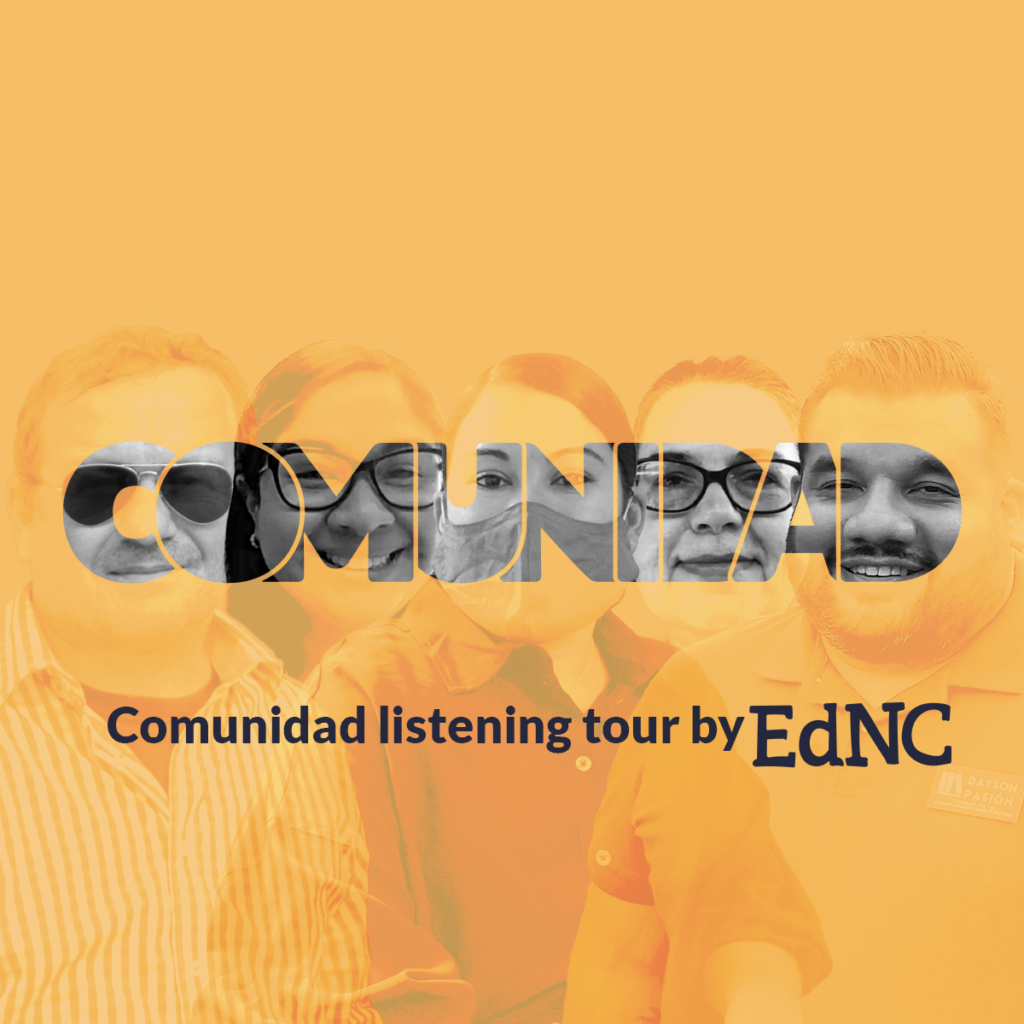

We provided graphic artists to record events for other organizations to promote transparency in virtual convenings.
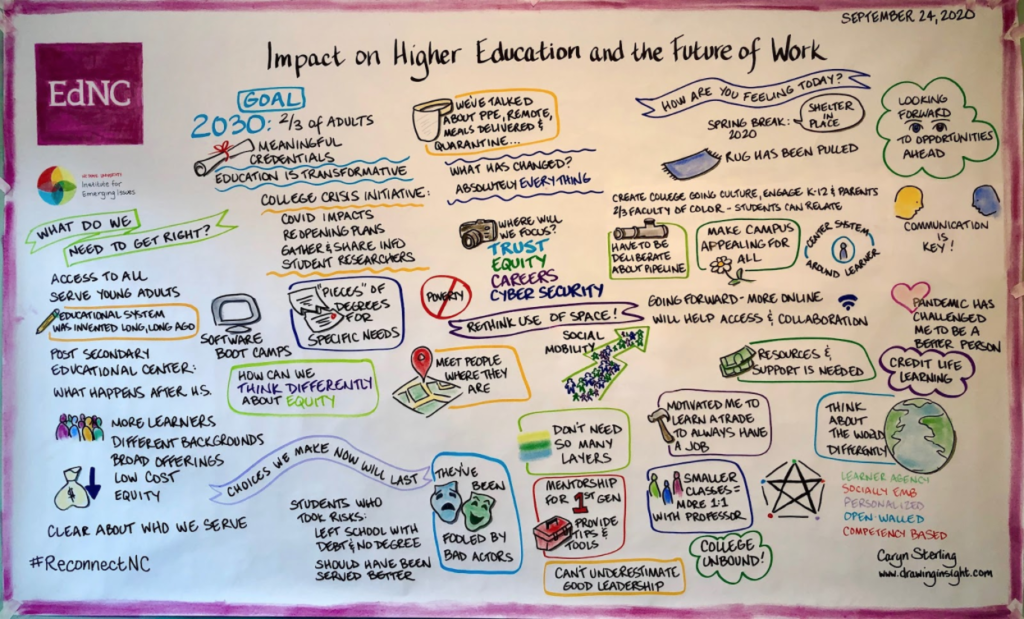

It was important to us to document what was happening in our schools and community colleges as the impact of COVID-19 unfolded. Our thanks to Public Impact and the NC School Boards Association for your help.
Lifting up leaders across North Carolina
Thank you to our teachers and school leaders for your public service in this year that seemed to get worse at every turn. We honor your leadership.
From the beginning of EdNC, we have wanted to give school leaders access to our platform and our audience. You can see that it in the perspectives we publish daily and our choice to include those leaders on our voices page.
This year, we invested in a podcast, the Hummingbird Stories. Children deserve great childhoods. This is a story about those of us who believe that to our core. Two principals — Donnell Cannon and Jenny O’Meara — interview school designers, community organizers, learning engineers, and education activists to learn what we should be thinking about when it comes to reimagining the future and the steps we can take today to create better schools, better childhoods, and better people tomorrow. We want you to dream radically about how we can amplify your voice.
This year, superintendents had to learn how to conduct a new symphony, the score changed, and the members of the orchestra shifted day to day. Robert Kinlaw spent more than 175 hours on 41 animations in this video about the life and leadership of Vance County Schools Superintendent Anthony Jackson.
We wish we could tell you we intended for this video about Principal Tabari Wallace to go viral. We didn’t. But our favorite part of this story wasn’t that Wallace ended up on Ellen. Instead what we loved most was the feedback we received from around the world telling us that this story changed how people perceive eastern North Carolina.
The strength of community
We produced multimedia content telling the story of the strength of rural places.
Documented by Better News, we iterated our town halls to include students. Here is our playbook for student town halls.
To better understand how COVID-19 is impacting community college students, EdNC.org conducted a Reach NC Voices survey of North Carolina community college students. 8,756 students responded.
Our impact
Each year, we survey our audience to assess and track our impact. This year, almost 700 of you responded. Of those, 75% discuss something you read on EdNC with colleagues, 49% apply knowledge gained from EdNC in your work, 48% share our articles, 21% changed your mind about an issue because of our work, and 12% discuss what you read on EdNC with policymakers. Thank you. It matters.
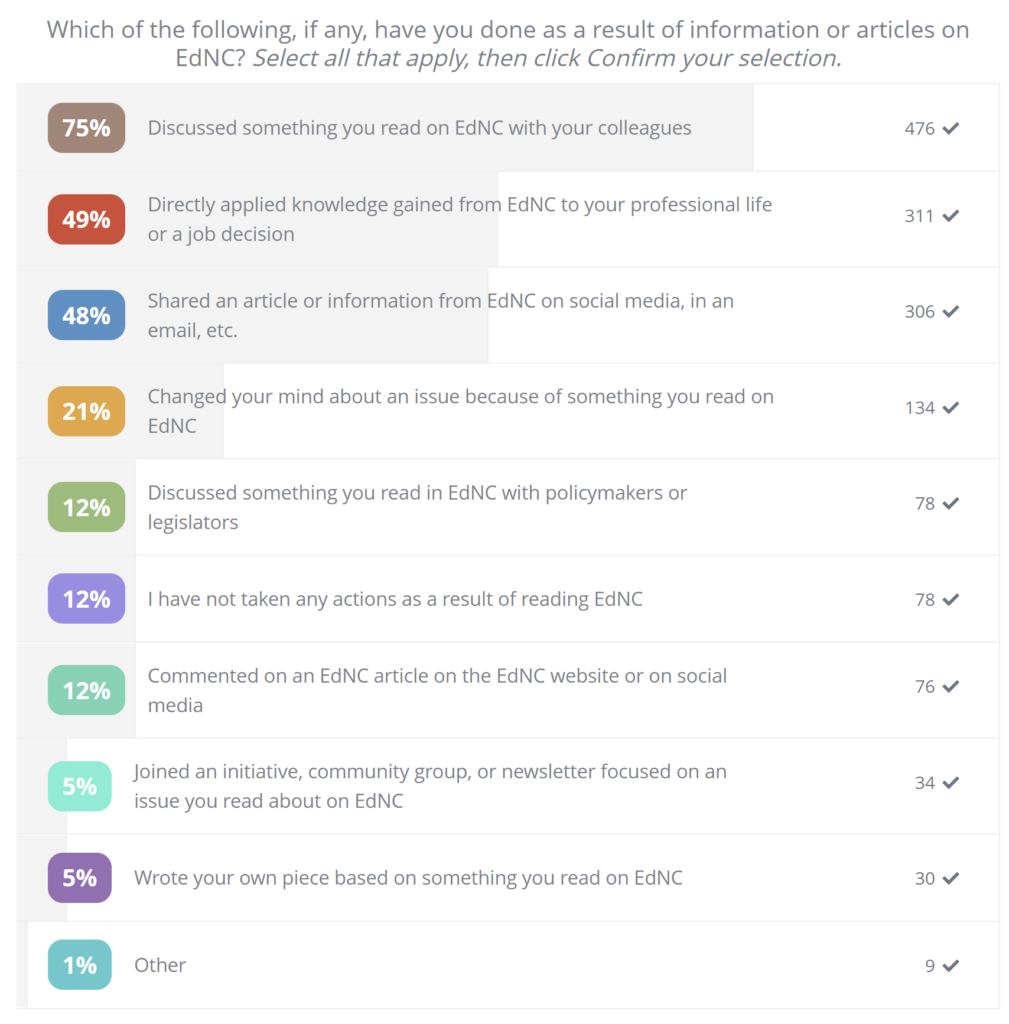

We are in the business of hope
You needed hope this year more than ever, and so did we. Here is our podcast, “Hope Starts Here.”
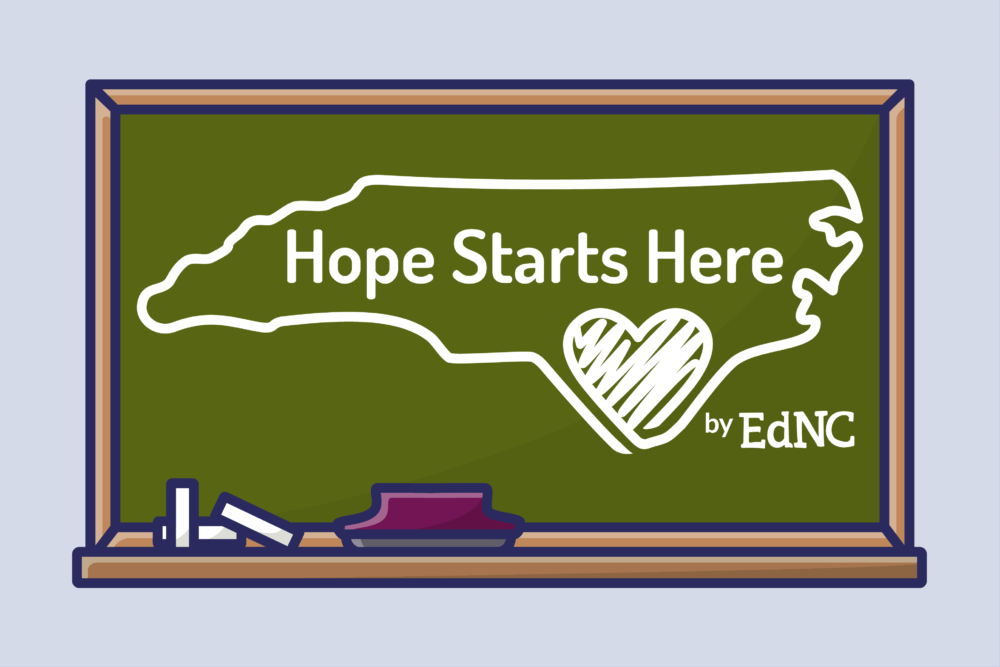

“Hit it out of the park with these stories. Love that EdNC.” — Eric Davis, chair of the N.C. State Board of Education
Our future
We have just launched pages on each district and on each community college.
This coming year, we are excited to expand our coverage to historically Black colleges and universities and to arts and education. Stay tuned.
About EdNC
EducationNC has been operating online since January 12, 2015, and June 30, 2020 marked the end of our sixth fiscal year.
Our mission is to expand educational opportunities for all students in North Carolina, increase their academic attainment, and improve the performance of the state’s public schools. We provide citizens and policymakers with nonpartisan data, research, news, information, and analysis about the major trends, issues, and challenges bearing on education. We gather and disseminate information employing the most effective means of communication, primarily through the internet. In addition to the content distributed, we encourage an active and connected community of those interested in education policy and practice throughout the state. Our work encourages informed citizen participation and strong leadership on behalf of the students of North Carolina.
EdNC uses a layered media strategy to engage you — all of you — in our architecture of participation.
Social first content happens when we are out and about in schools and community colleges in the communities they serve. Our news documents in real time what is happening — when and where and why, providing comprehensive coverage of issues, covering stories over time, as well as enterprise projects. We then conduct in-depth research and policy analysis on the issues surfaced by the news. EdNC’s surveys allow our audience to weigh in on the issues and our work — sometimes our reporters follow up and a respondent becomes a source for a story; other times, we go on to share responses with philanthropists and policymakers. Our multimedia capacity allows us to infuse our work with graphics, audiograms, podcasts, videos, short and long-form documentaries. Instead of having annual or traditional convenings, we use a more responsive events strategy, holding events when building relationships, listening sessions in community, or convening stakeholders as needed.
Our media strategy is reflected in our theory of change. We have seven drivers of impact: journalism as the fourth estate in a democracy, in-depth research, building and engaging our audience, tracking the impact of our work, moving the needle on policy change, responsive experimentation in the new media and nonprofit world, and increasing leadership capacity statewide.
Here is our news. Here is our research by topic.
We continued to cover the day-to-day happenings even as COVID-19 upended schools and community colleges, from the legislature to the State Board of Education to the State Board of Community Colleges, from broadband to FAFSA to child nutrition. We also covered leadership transitions in K-12 and in our community college system.
In our impact survey, 80% of respondents believe we provide a neutral view of what’s happening in education across North Carolina.
Our research on ADM and the hold harmless, literacy, and developmental education is changing public policy.
“Your reporting and analysis on developmental ed represents what I think is the great value EdNC brings to the journalism and policy table. Developmental education is a complicated topic (boring I know to the general audience), but addressing this issue I believe is one of the most important education policy issues of the past decade.” — Scott Ralls, president, Wake Technical Community College
We have verticals — or sections of related content — that focus on early childhood, learning differences and equity including the launch of LENS-NC, community colleges, STEM, and rural North Carolina.
“I think you do a real service for the system and the state. And this is appreciated … it’s become like our unofficial, statewide community college magazine and journal all at the same time. It’s a great service, and I read and appreciate it.” — Tim Wright, president, Wilson Community College
Here is our statement on EdNC’s journalistic independence:
EducationNC was established to provide an independent source of news, data, and analysis about education for the people of North Carolina. EdNC welcomes and values input and comment from everyone, and accepts funding support for specific subject areas we decide to cover, but will never allow anyone – our board, our funders, or the people and organizations we cover – to control the content we publish. True independence requires clear accountability, and the accountable control over all EdNC content is vested in our editor-in-chief. That carefully-chosen person is instructed by EdNC’s board of directors to develop and publish the content he/she deems newsworthy, free of any and all outside influence. At EdNC, we are responsible to the people first and beholden only to the great tradition of independent journalism.
Here is our statement on equity:
Being in healthy, positive, and equitable relationships with residents, leaders, organizations, and communities is critical for impactful partnerships and to support systems level change. It requires hard conversations about difficult issues, creation of intentional space, interrupting false narratives, choosing to not be complicit in issues or practices that perpetuate inequities, good intent without a hidden agenda, and the resistance to render individuals invisible or villains when issues get uncomfortable and hard.
To date, we have published 5,794 articles lifting up 1,042 voices from across our state, collectively writing the story of education in North Carolina.
EdNC’s Team
Mebane Rash is CEO and editor-in-chief, and this year she is in the Hunt Institute’s inaugural cohort of ElevateNC: Higher Education. Alex Granados is our senior reporter. Nation Hahn is director of growth. Liz Bell is our early childhood reporter. Molly Osborne is director of policy, and this year she was selected for the WW Higher Education Media Fellowship. Analisa Sorrells is chief of all the things and associate director of policy. Caroline Parker is a multimedia storyteller about the strength of rural places with a focus on STEM, faith, and arts and education. Robert Kinlaw is our multimedia director. Rupen Fofaria is a storyteller with a focus on equity, learning differences, and literacy. Alli Lindenberg is a multimedia storyteller with a focus on all things audio. Sergio Osnaya-Prieto is our communications strategist. Michael Taffe reports on community colleges, postsecondary access, and attainment. Emily Thomas is a policy analyst with a focus on community colleges, postsecondary access, and attainment. Dean Drescher is our director of operations. Eric Frederick is a part-time news and audience editor.
Kaidyn Radford is an intern for EdNC through the John M Belk Endowment’s Impact Fellowship. The fellowship serves to provide training and experience for future social impact leaders in North Carolina. In addition to his internship, Kaidyn is a senior at UNC-Chapel Hill majoring in communication studies and women and gender studies. At EdNC, Kaidyn creates graphics for articles and videos. He is also creating a podcast with support from the team called “Beyond the Classroom: Voices from Community Colleges.” The podcast is centered around telling the stories of community college students, mentors, and professors throughout North Carolina.
Our thanks to Ferrel Guillory, Kelley O’Brien, Unity Web Agency, and Outfitters4 who play invaluable roles on our team. Many thanks also to our attorney, Amanda Martin, and our accountants, Batchelor, Tillery & Roberts, LLP.
Nancy Rose, our chief of operations, retired in January 2021. Nancy began her career as an educator. She started working at the N.C. Center for Public Policy Research in 1983, working at the Center and EdNC for more than 37 years. Her career in administration, finance, and technology with nonprofits in North Carolina and nationally with First Vote NC, NTEN, and the national Governmental Research Association has been unparalleled.
Nancy taught us day in and day out how to live and work in servant leadership to this state we love and call home. And she made our team a family with toffee and syllabub at holiday parties and team meetings in her beautiful secret garden. Nancy, you are beloved.

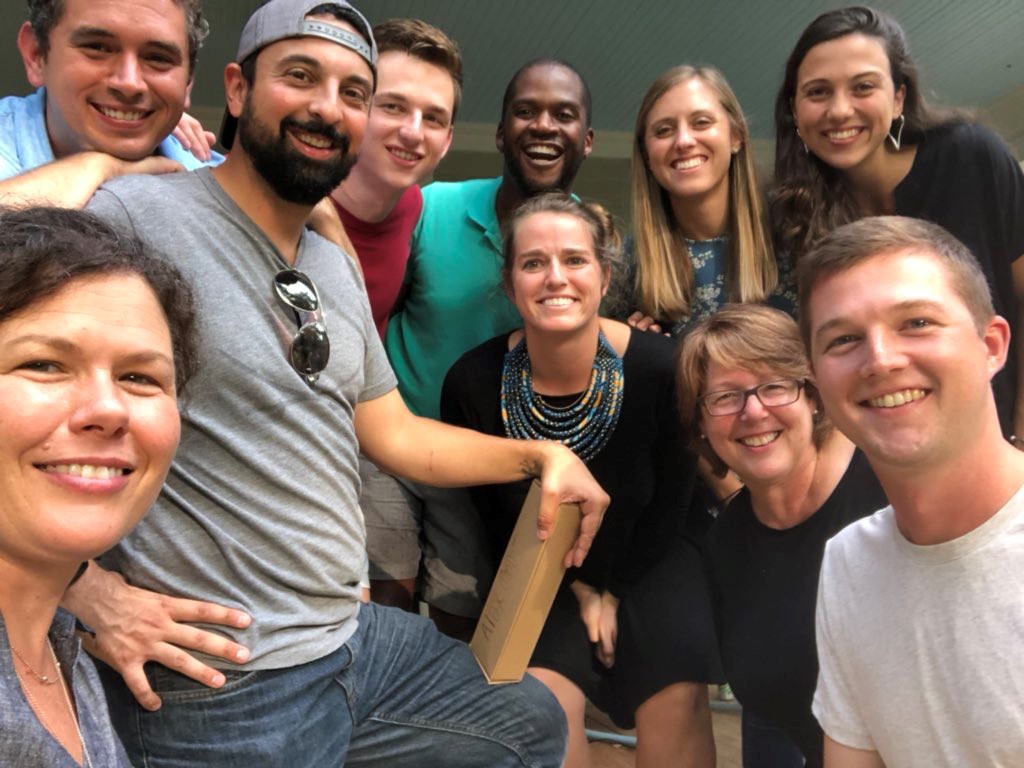
With the team 
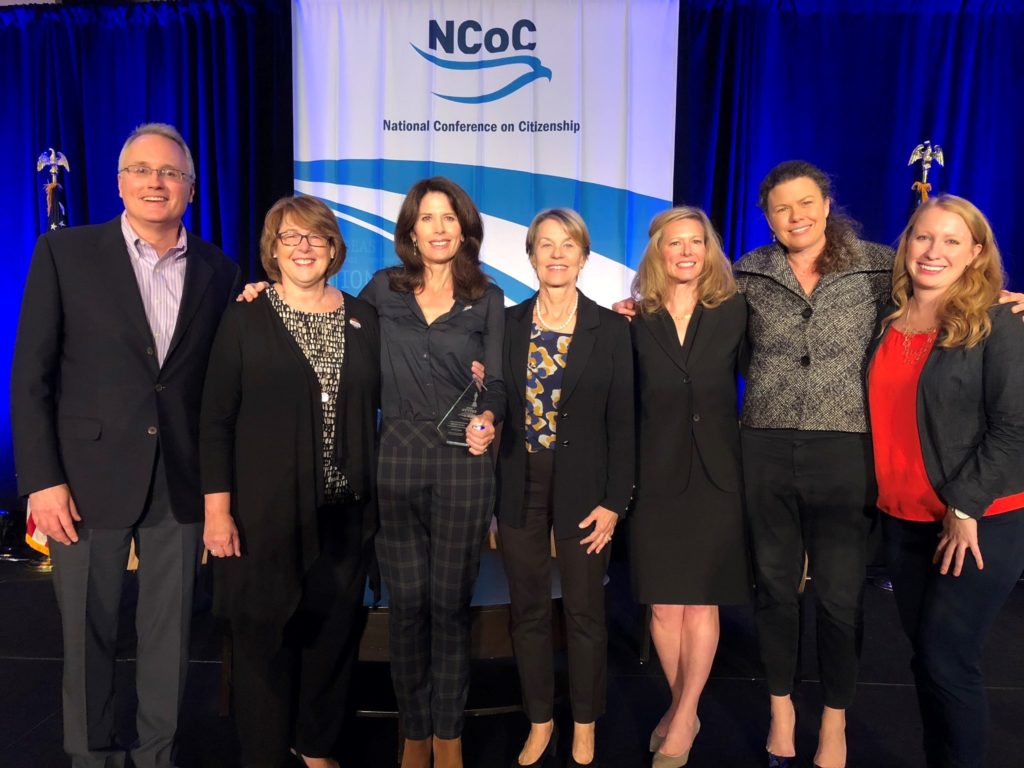
An award winning trip to DC 
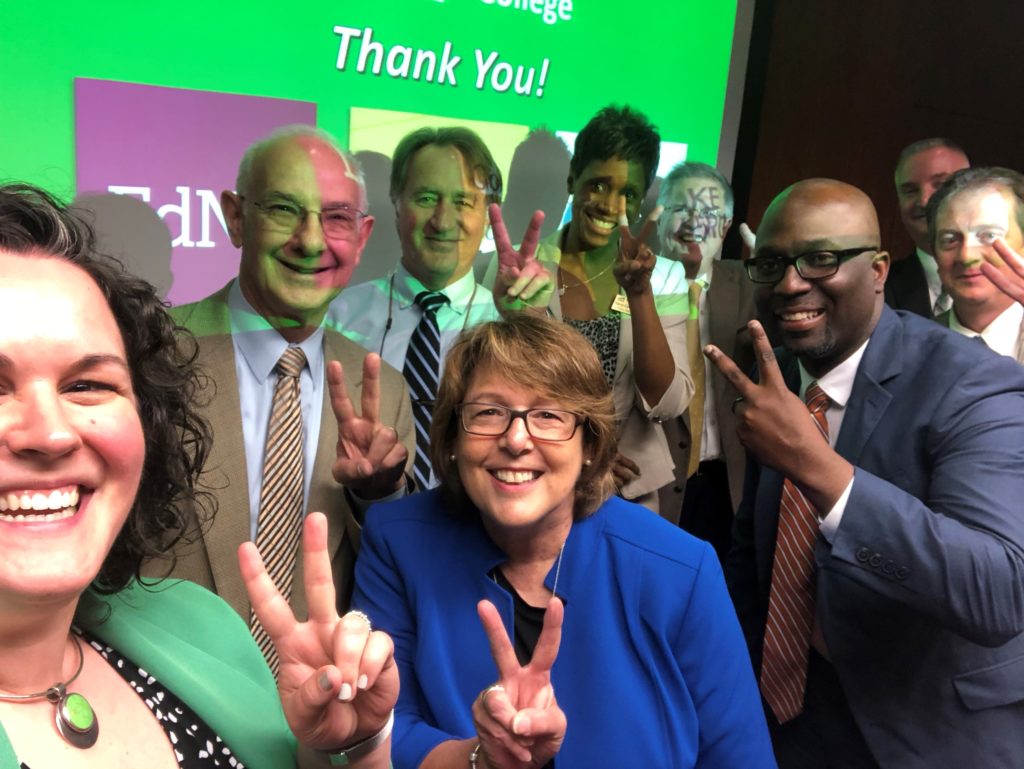
On the community college blitz
EdNC’s Board of Directors
We are thankful everyday for our board and your dedication to our work, but more importantly your dedication to our students, our state, and our future. A special thanks to our founders, Gerry Hancock and Ferrel Guillory, and our executive committee.
EdNC’s Supporters
Our funders breathe life into our work. Thank you.
Here are our supporters by year.
EdNC’s Annual Report and Financials
Here are EdNC’s previous annual reports. Here are EdNC’s audited financial statements and tax returns.
Thank you for your ongoing support of EducationNC. We could not do our work without you. Expect great things from us, and please donate so we can continue to grow our impact in 2021 and beyond.


